| 上传:English | 审核发布:admin | 更新时间:2015-3-24 13:45:31 | 点击次数:738次 |

Teaching and learning Goals:
一、语言知识和语言功能:
1.能争取学会使用下列词汇造句子(Curriculum words)
rule、hall、dish 、luck、 hair、 arrive、 listen、 fight、 wear、 bring、 practice、 relax、 read、 feel、 remember、 follow、 keep、 learn、 sorry、 important 、quiet、 more、 noisy、 dirty、 terrible 、strict、out、late ,out, night, kitchen, remember, follow, follow the rules, luck
2. 能争取学会使用下列常用短语造句子(Useful expressions)
listen to, follow the rules, dinning hall, have to , go out, do the dishes,
wear the school uniform, be quiet , on time , practice doing sth
be strict with , make one’s bed , remember to do sth /doing sth , learn to do sth.
3. 能认读下列词汇(non-curriculum words)
terrible, follow , night, before, outside, important, rules
4. Understand, translate and retell a passage made up of the above Curriculum words and phrases according to a mind map (理解、翻译并复述用课标内单词编写的故事。)
二、学习策略:
Remember the Curriculum words and phrases in specific situations. (在语境中记忆单词)
三、情感态度:
Students can know about the rules and what rules they have to follow. Students can learn about what the good habits are.
(目标引领,用一段话表达了本节课的知识、能力和情感目标。)
Teaching and Learning Steps(教学步骤)
Sept 1:Lead in :
Show the students some sentences and guide the students to have a chant.
Can we wear hats in school?
No, we can’t. No, we can’t.
Can we listen to music?
Yes, we can!
What else do we have to do?
We have to eat in the dining hall.
Do we have to wear a uniform?
Yes, we do.
Can you watch TV after school?
Yes, I can. Yes, I can.
Can you go out on school nights?
No, I can’t.
What else do you have to do?
I have to practice the guitar every day.
Do you have to clean your room?
Yes, I do.
(以歌谣的形式导入新课,可以激发学生的兴趣,提高课堂气氛)
In this chant, we have known some words and phrases about rules. Today we’re going to learn more words about rules we have to follow . Let’s come to the new words and phrases of Unit 4.
Step2:Learn to read the words and phrases on P19-P23
1. Read the new words by themselves.
First get the students to read the new words according to the phonetics given by themselves. If they meet the words they don’t read, they will underline them.
( 通过自读,找出本单元不会读的单词标出来,)
2. Work in groups.
Read the marked words in turn in small groups. One student read, the others listen and help to correct the wrong pronunciation(纠正错误发音).
(小组讨论如何根据音标读单词,听组长读,初步解决疑难。)
3 .Correct the pronunciations with the teacher’s help.
Next get some individual students to read and let the students correct the pronunciations first . If most of the students can’t read the words correctly, Follow the teacher because they can hear the teacher pronounce the word clearly and correctly. (检查读的情况,以便纠正发音)
4. Listen to the tapes and read after it. .
Next get the students to read the words twice after the tape . Then give them a few more minutes to read all the words quickly to consolidate the pronunciation.
(听录音,模仿发音,进一步纠正自己的发音
5. Read again.
Read the words aloud by yourselves again to see if everyone can read all the new words correctly and fluently. (兵教兵,兵练兵,巩固所学。)
(设计意图:首先学生自己根据音标字读单词,并标出试读时有困难的。接着两人一组或以小组为单位解决遇到的困难。然后找单个同学读单词,教师及时更正错音,帮助学生正音。最后让学生跟录音读。单词的学习坚持从个体—同伴—小组—整体的原则,培养学生自主学习和小组互助学习的能力。)
Step3. Learn to remember the words and phrases on P19-P23.
1.Remember the words according to the pictures.
Boys and girls, we know there are many rules everywhere .
Then show the Ss some pictures, point at the pictures and ask them like this :
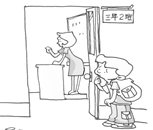 A:At school , can we arrive late for class ?
A:At school , can we arrive late for class ?
B: No, we can’t .We have to arrive at school on time.
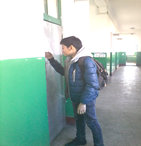
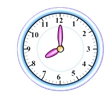
Don’t arrive late for class. You must be on time.

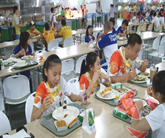
We have to wear uniforms. We have to eat in the dining hall.
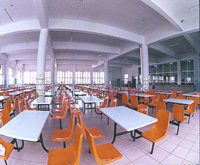

Look! Our dining hall is clean. It’s not dirty. He is dirty.
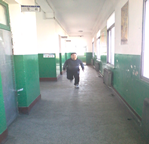 A: Can we run in the hallways?
A: Can we run in the hallways?
B: No, we can’t. We can’t run in the hallways.
 Don’t listen to music in class !
Don’t listen to music in class !
A: Can we listen to music in the classrooms?
B: No, we can’t. But we can listen to it outside.
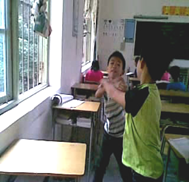
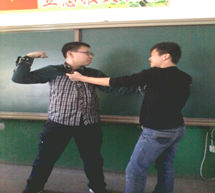
A: Can you fight? B: No, We can’t. We can’t fight.
You must be friendly to your classmates.
 Molly has many rules at home .The rules make her unhappy.
Molly has many rules at home .The rules make her unhappy.
(Show some pictures one by one to learn the phrases about the family rules.)
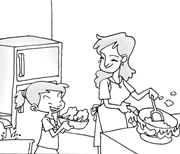
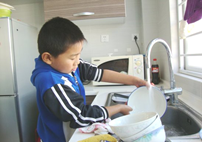
help mom make breakfast in the kitchen. do the dishes in the kitchen
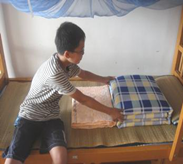
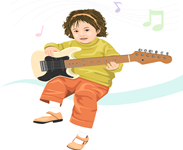
practice making one’s bed Practice your guitar every day.


Do your homework first after school.
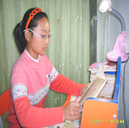
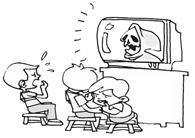
Read a book before watching TV feel terrible
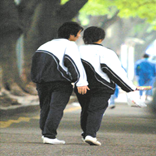

Don’t go out on school nights.
T; Let’s read the phrases three times .
Although there are too many rules at home . Parents are strict with us .
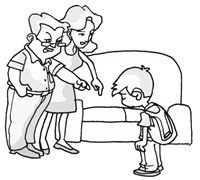

His parents are strict with him. Don’t be very strict with the children.
Remember, they make rules to help us to be better. We should follow them. (不以规矩不能成方圆。)

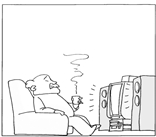
We must follow the rules . But we should learn to relax.
(设计意图:用图片教学生学习单词形象、直观。让学生熟悉本节课将要用到的一些重要短语,并将新单词放在有具体的语境的句子中学习,便于学生理解、记忆。两者结合起来,便于提高单词的记忆的效率。)
2.Remember the words by derivative(派生) complex words (合成) and comparison(对比)
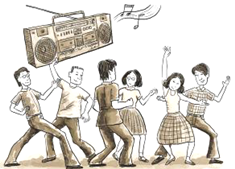
make noise Don’t be noisy
(派生)
1.noise --- noisy
I can’t be noisy or eat in class.
At home, Molly can’t make noise.
2. luck (n.)-lucky(adj.)反 -unlucky -luckily(adv.)反 –unluckily(adv.)
 Good luck to you ! He is a lucky boy.
Good luck to you ! He is a lucky boy.
Unluckily, I have to follow them.
3.relax(v.)-relaxing ( adj.)-relaxed (adj.).
After dinner, I can’t relax either.
We should have a relaxing holiday .
(合成)
4.走廊,过道 hall + way = hallway
5.餐厅 dining + hall = dining hall
6.规则 rule ------rules
7.在外边 out-side-outside
We can’t listen to music in the classrooms. But we can listen to it outside.
(对比)
8. before反–after
Molly has to read a book after dinner before she can’t watch TV.
She can’t watch TV before she reads a book.
9. forget 反-remember
10.dirty反---clean Our classroom is clean. It’s not dirty.
11.dish 复数—dishes
Don’t leave the dirty dishes in the kitchen!”
12 .many/ much 比较级 ---more
There are too many rules at school.
At school, we have more rules— don’t be noisy, don’t eat in class,…
13. 到达arrive in /at 同义词---reach---get to
1).My mother usually get to school at 7:40 in the morning.
2)When do you usually arrive at the bus station?
3) Jenny’s uncle usually arrives in Shanghai in the evening.
4)We have to arrive at /-reach/get to school on time.
(设计意图:运用conversion(转换) 、complex words (合成)and derivative(派生)构词法,科学记忆单词;在记忆的基础上,老师引导学生对学过单词分类总结。教会学生,运用多种、科学的记忆单词的方法记住单词。)
3. Remember the words by their similar pronunciations and forms.
1. ruler ---rule. 2. all-ball-hall-hallway-dining hall
3.right-light-bright-fight 4. ear-hear-wear
5. ring-bring 6.form-uniform
7. fish-dish 8. between-behind-before
9.thirty-dirty 10.sleep-sweep-keep
11. air-airplane-hair
(这一环节让学生通过自己以前学过的熟悉的单词来记忆本课所学的新单词,这样学生既省时间记得又快,学生也感兴趣。)
4.Remember the words by matching them with their Chinese
A.
1.在走廊里跑 A. listen to music in class
2.上课迟到 B. on time
3.学校里打架 C. run in the hallways
4.按时 D. eat in the classroom
5.在教室里吃东西 E. fight in school
6.在餐厅里吃饭 F. eat in the dining hall
7.上课时听音乐 G. arrive late for class
B.
1.listen to A. 听
2.Have a fight with sb B.对某人严格要求
3.keep quiet C.练习做某事
4.do the dishes D. 整理床铺
5.go out E. 保持安静
6.practice doing sth F.学会去做某事
7.make one’s bed G.遵守规则
8.be strict with sb H. 记得做过某事(事已做完)
9.remember to do sth I. 清洗餐具
10.remember doing sth J. 出去
11.follow the rules K. 与某人打架
12.learn to do sth L. 记着去做某事(事情未做)
(此环节用幻灯片呈现给学生,先让学生自己匹配最后教师纠正再给出正确的答案,给学生几分钟的时间去背诵,最后同桌互查,以达到全部通过。)
5.Remember the words by playing a game: snow ball.
T: Now let’s play a game ,“Who has a good memory? ”
When the teacher make the snow ball move, one student says “stop” . Tell us the meaning of the phases ,then spell it . If you are right, you can get a present.
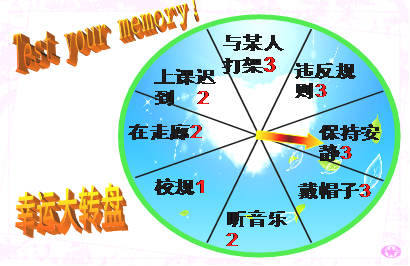
6.Guess the following underlined words according to the context.
Don’t arrive late for school.
We can’t listen to music in the hallways, but we can listen to it outside.
You must eat in the dining hall.
At school, I have to wear a school uniform.
I must read a book before I can watch TV.
Rules, rules, rules! It’s terrible!
Parents and schools make rules to help students. So students must follow the rules.
Bob always makes his bed himself.
My English teacher is strict with me.
I have to keep my hair short.
I must get up before 6:30 and practice English.
I can’t go out on school nights.
7.Remember words by looking at a semantic map.
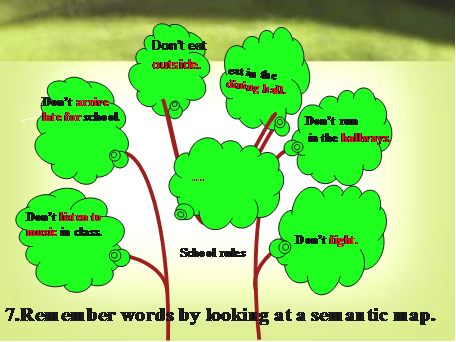
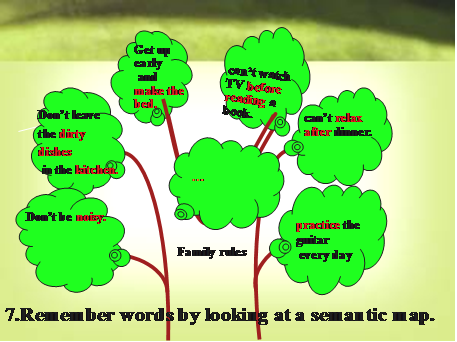
Step 4 .Consolidation of words .
1.Give the students a few minutes to to read the word by looking at the Chinese. Then look at the Chinese and say English.
2. Then get them to work in pairs to spell the words and write down the words with the Chinese given in guide books. Underline the words they haven’t grasped.
3.After trying to memorize the words. I give them a short dictation. If they can’t write down the words ,they can write the meanings of words they haven’t grasped.
4.They check each other. If they make mistakes, I give them several minutes to correct them.
(此环节为巩固单词。通过提问或使用助学默写的形式来对单词加以巩固。这一环节有少部分的学生往往不达标,需要利用自习课或课余的时间让小组长跟踪检查,尽量能让全部学生顺利过关。)
Step 5. Read the story .
T: Now I’ll give you a story to see if you can understand the words well. Please read it and try to translate it. First you read silently by yourselves. If you meet some difficulties, you can discuss with your group.
We have different kinds of rules at school,. As a student we must follow them.
Students can not bring food into the classroom because our classroom is a place for us to study. The food may make our classroom dirty. We have to arrive at school on time. Don’t run or fight in the hallway. We have to keep quiet in the classroom.
We need a quiet place for study. Don’t listen to music in the classroom. we can’t bring music players to school, either. Listening to music may disturb (打扰) others.
We have to eat in the dining hall and wear our uniforms on school days. We can’t go out, have long hair,
What’s more, we have a lot of rules at my house. Our parents always are strict with us and ask us to remember lots of rules: Before I go to bed, we have to make my bed and can’t be noisy. Every day I have to practice reading ,cleaning the dirty kitchen and doing the dishes .
I’m not happy. I feel these rules are terrible. Unluckily, I have to follow them. Let’s learn to relax. Do you have lots of rules? Are they fair?
(在学生掌握本单元单词的基础上,把本单元的生词编成了一篇关于英语学习的短文,引导学生不仅记忆词汇本身的意义,同时在具体的语境中体会它的意义,体现了在用中学的教学理念,有助于学生实际和使用本单元的词汇。)
Step 6 Mind map(思维树)
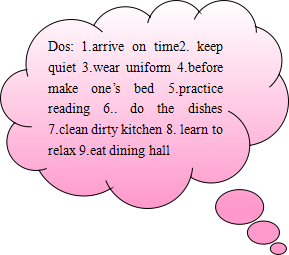

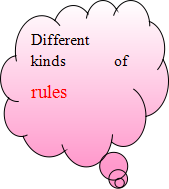

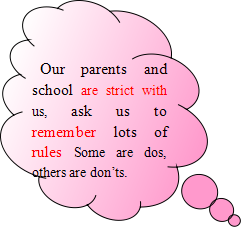
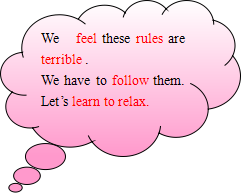
Homework
1.Review the words and phrases.
Make sentences with the words and phrases .
2. Retell the passage with the help of the mind map.
3. Preview Section A 1a---2d.(用助学预习 Section A)
The end-of-class test
一、Fill in the blanks according to Chinese or the first letter:
1.You can listen to music______(外面的)。
2. We can’t run in the h______.
3.What are the _____(规则)at your school?
4. Don’t a____ late for class. You must be on time.
5 .Please be ______(安静的)in the library.
6. Do you have to wear a u_____ at school?
7. We have to w________ sports shoes for gym class.
8. You’d better f_______ the rules.
9. ________ (not fight ) with each other in the classroom.
10. We can eat in the d_________ hall every day
二. Fill in the blanks without looking at the above passage.
We have different kinds of 1 (规则)at school,. As a student we must follow them.
We have to arrive at school on time. Don’t run or2. f_____(打架) in the hallways. We have to3.k ____(保持)quiet in the classroom. We need a quiet place for study. Don’t listen to music in the classroom. we can’t4.b____ (带)music players to school, either. We have to eat in the5. d _____(餐厅) and wear our 6.u _____ (制服) on school days. We can’t go out, have long hair.
What’s more, we have a lot of rules at my house. Our parents always are
7.S ____ ( 严格的) with us and ask us to remember lots of rules: Before I go to bed, we have to make my bed and can’t be 8.n____ ( 吵闹的). Every day I have to practice reading ,cleaning the dirty kitchen and doing the dishes
I’m not happy. I feel these rules are 9. t (糟糕的) . Unluckily, I have to follow them. Let’s learn to 10. r (放松) .Do you have lots of rules? Are they fair?
(通过习题的检测使学生对单词写的方面更进一步的巩固,学生会更明确哪一些单词没掌握好,以便于下一步的记忆.)
亮点:
本单元的单词贴近学生的生活,涉及某些规章制度(校规、家规等)学生能用英语表达和制定一些简单的规则,理解没有规矩不成方圆;无论是在学校时还是在家庭中以及以后走上社会都应当遵守规则,按规则办事。
本课堂设计基本涵盖了本单元的单词,尤其是故事编写让学生在故事中对单词有了大致理解。
1.单词的拼读注重了学生自学能力和小组合作能力的培养。
2.用图片教学生, 学习单词形象、直观。将新单词放在有具体的语境的句子中学习,便于学生理解、记忆。两者结合起来,便于提高单词的记忆的效率。
3.运用conversion(转换) 、complex words (合成)and derivative(派生)构词法,科学记忆单词;在记忆的基础上,老师引导学生对学过单词分类总结。教会学生,运用多种、科学的记忆单词的方法记住单词。
4.在学生掌握本单元单词的基础上,把本单元的生词编成了一篇关于英语学习的短文,引导学生不仅记忆词汇本身的意义,同时在具体的语境中体会它的意义,体现了在用中学的教学理念,有助于学生实际和使用本单元的词汇。
5.把故事用知识树的形式呈现既新鲜又实用,能很好的帮助学生把故事串成一个整体。这样既巩固了新单词又锻炼了学生在语境中理解和记忆单词的能力。
不足之处:
本课的词汇较多,对初学者来说有难度,在课上很可能掌握不了。我认为应该让学生用一定的时间提前预习,才能达到预期的效果。本节课容量较大,后进生难以全部消化。
使用建议:
对于初学者而言,在讲完音标的基础上拼读单词效果好。单词的学习要形式多样,灵活多变。不同的词汇有不同的记忆方法,一定要教会学生方法,做到举一反三,那样记单词就不枯燥无味了。一定要把词汇学扎实,做到读准,写对,会用。为文章的学习打好基础。以免在学习英语的过程中掉队。
Keys
一. Fill in the blanks without looking at the above passage.
1.outside 2.hallways 3.rules 4.arrive 5.quiet
6.uniform 7. wear 8. follow 9.Don’t fight 10. dining
二. Fill in the blanks without looking at the above passage.
1.rules 2.fight 3. keep 4.bring 5.dining room
6 .uniforms 7.strict 8.noisy 9.terrible 10.relax

通讯地址: 广州市天河区东圃黄村龙怡苑 (510660)邮箱:lzm6308@163.com 联系QQ:534386438
Copyright © 2008-2012 klxkc.com All Rights Reserved. 粤ICP备15026984号-1
